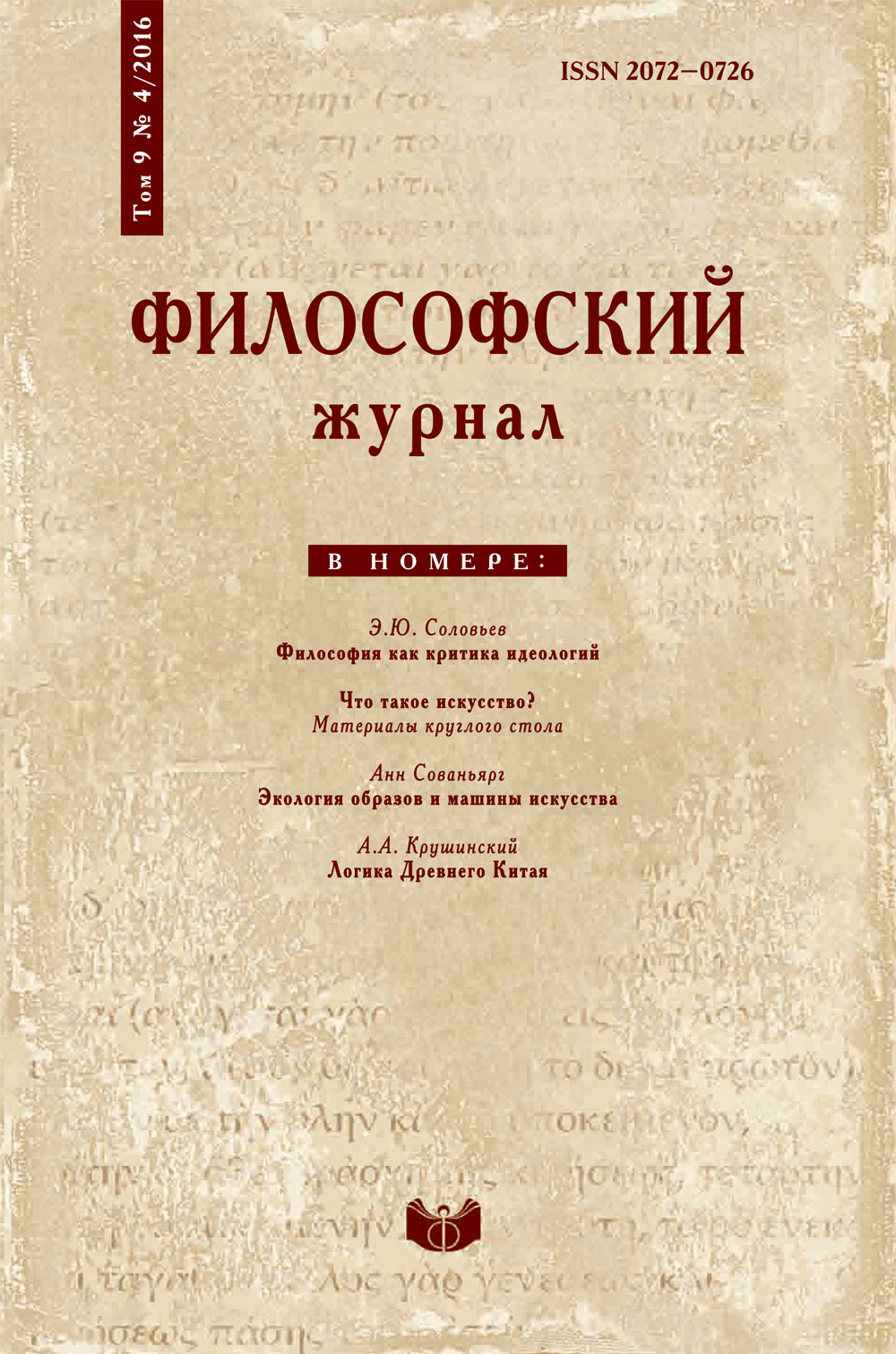The ‘Philosophy of thinking’ of Pavel Florensky
DOI:
https://doi.org/10.21146/2072-0726-2016-9-4-92-110Keywords:
Florensky, platonism, monodualism, eidos, consciousness, thoughtAbstract
This article is a study of a set of largely ignored ideas found in the philosophical Nachlass of Pavel Florensky, which, according to the authors, may point toward a new potential theory, a “philosophy of thinking”. The problem of thinking has hitherto received only insufficient attention from the various branches of philosophy, despite the fact that its multifaceted character makes it suitable to provide ground for a new philosophical synthesis, the latter being much needed to holistically comprehend the wealth of amassed empirical data and hypotheses which do not fit into the dominant scientific paradigm. Today, as the authors contend, we witness a renaissance of platonism, the philosophy to which Pavel Florensky belonged and to which he made contributions of utmost importance. Particularly significant was the principle of 'spiritual materialism' which he applied in reconsidering all forms of being, assuming that thoughts possess a certain 'thingness' and thus affect the world both indirectly and directly. This shows striking affinity with some of the trends in present-day science, notably in biology and in micro and megaworld physics. In the process of cognition man, in Florensky's view, gets hold of the idea of an object (its true being); truth, therefore, is not an epistemological construct but rather a congruence of individual thought with the eidos. More than that, the individual acts of thinking not only are capable of generating the new meanings, but also of complementing the existing eidetic structures with new layers of meaning and semantic energies. Finally, in his anthropology Florensky consistently develops the idea of the identity of micro- and macrocosm; he emphasizes the direct impact that intellectual and spiritual activities of a human being exert on the entire universe. Florensky's “philosophy of thinking”, if properly developed to include a practical dimension, may prove instrumental in approaching some of the fundamental problems mankind is facing.






